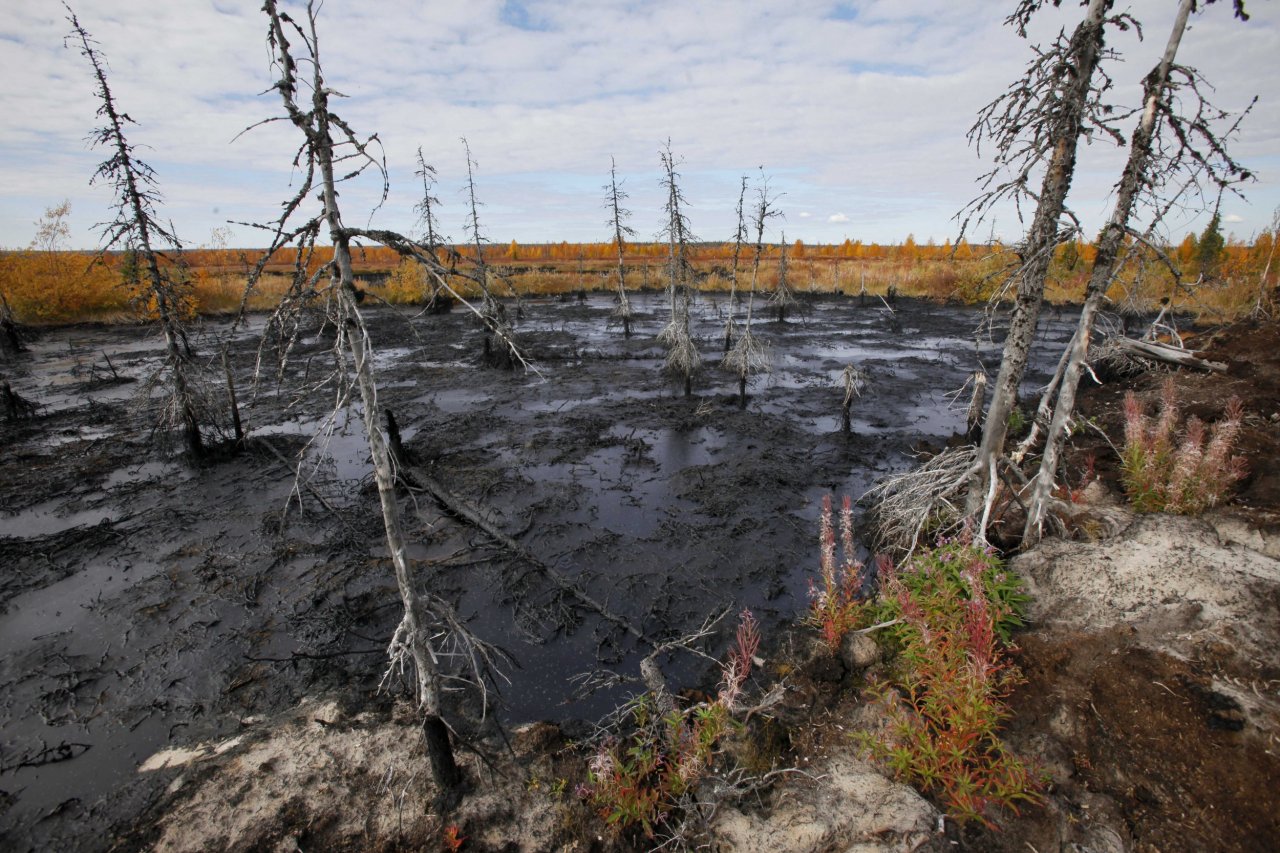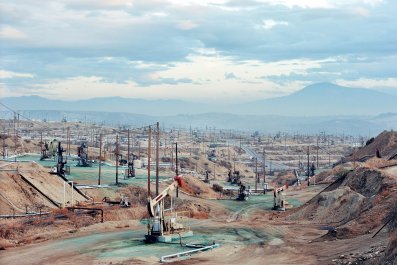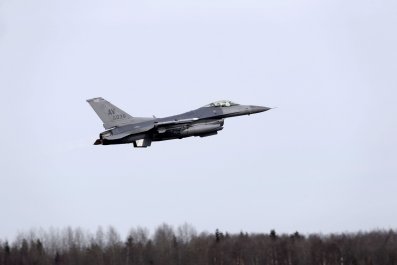Russia's ageing and leaking pipelines are wasting millions of tonnes of oil a year, causing widespread environmental damage that largely goes unreported, according to Greenpeace Russia.
The pressure group says the problem is getting worse as Russia battles against falling oil prices and continued Western sanctions at a time when its pipelines need urgent repairs or replacing altogether.
"Oil extraction and oil spills are now synonymous in Russia," says Evgenia Belyakova, Greenpeace Russia's Arctic project coordinator. "Spills often happen as soon as a well is opened but most of them occur because of the bad conditions of the pipelines."
Belyakova says that across Russia's "hundreds of thousands of miles" of oil pipelines, many segments are still in use many years after their recommended lifespan has expired. To compound the problem, Russian oil companies are not obliged to record the full extent of any spills and therefore any ensuing pollution also goes unreported.
Greenpeace Russia's claims are supported by figures from the Hydrometeorological Centre of Russia, a state-run organisation that tracks pollution in Russian waters and estimates that 500,000 tonnes of oil hydrocarbons leak into the Arctic seas each year, while up to 4.5 million tonnes of oil are spilled annually on the Russian mainland.
The country's 4.5 million tonnes of leaked oil is seven times greater than the BP Deepwater Horizon spill in the Gulf of Mexico in 2010.
Belyakova says Russian oil companies have seldom made pipeline repairs a major priority and that now, during the current financial crisis, "they are likely to spend even less" on maintenance.
Gazprom Neft, which manages Russia's only off-shore Arctic field – known as Prirazlomnaya – defended its record of pipeline maintenance, insisting that it provides "timely replacement" for its pipes.
The company played down the risks of offshore drilling in the "extreme climate" of the Arctic and said its facilities at Prirazlomnaya "prevent the discharge of any production or drilling waste into the sea".
But Greenpeace Russia believes that not only is drilling offshore in the Russian Arctic "risky", but could become unnecessary altogether. It estimates that the 70 million tonnes of oil which the Prirazlomnaya project is expected to produce could be accounted for within some 15 years if Russian pipelines stopped leaking its 4.5 million tonnes of oil a year. Meanwhile, the group argues that Gazprom has underestimated the harshness of the Arctic's conditions and that "provisions in the case of an offshore disaster are non-existent".
Deborah Gordon, director of the Carnegie Endowment's Energy and Climate Programme – which has an office in Moscow – says the state of Russia's pipelines is a growing issue.
"The oil industry is built on continued pipe management," says Gordon. "Given its ageing oil infrastructure and lax regulations, Russia has a lot to prove.
"If you are maintaining an oil infrastructure, remote locations and extreme climates make the challenge even greater – and Russia does not have a great track record of pipe management."
Gordon says that given its leading role in global oil production, Russia and its "pipeline integrity and management standards" can expect to be placed under greater scrutiny.











































